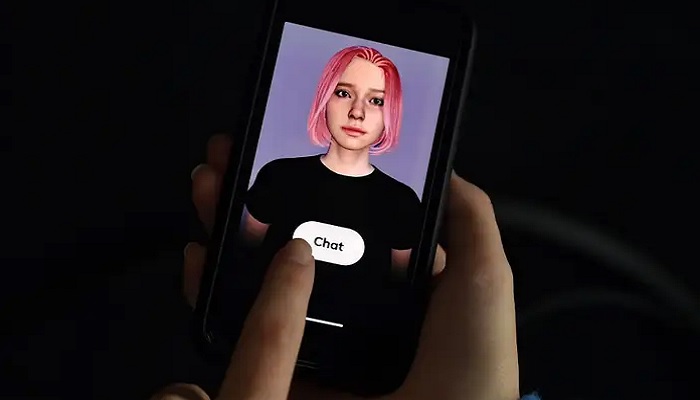Lovebots Lie: How AI girlfriends are leaving people lonelier, destroying lives
AI robots capable of emotionally and physically satisfying humans will become a reality in less than a decade, expert predicts
December 24, 2023

The surge in the popularity of "perfect" AI girlfriends is detrimental to an entire generation of men and may jeopardize real human relationships, warns an expert.
According to a report published in The Sun (UK), the increasing sophistication of virtual girlfriends fueled by AI contributes to heightened loneliness among single men and blurs the lines between reality and virtual companionship.
Data science professor Liberty Vittert, speaking to The Sun, highlighted the evolving nature of AI girlfriends, stating,
"AI girlfriends are becoming more like physical beings - they are almost indiscernible from a real human." Realistically replicating human interactions and appearances by these virtual companions raises concerns about their impact on genuine human connections.
Vittert predicts a future where physical AI robots capable of emotionally and sexually satisfying humans will become a reality in less than a decade.
The current AI girlfriends operate through advanced algorithms and AI technologies, offering realistic conversations with context-aware responses and an understanding of emotional tones.
Developers craft virtual personas for these artificial companions, complete with personalities, interests, and preferences, integrated into the AI systems for an authentic and tailored user experience.
Apps like Replika and Eva AI provide customizable AI girlfriends, allowing users to adjust various attributes to meet their preferences.
However, Liberty Vittert cautions against the dangers of this trend, noting that AI girlfriends, unlike real partners, are always available and provide unconditional positive responses.
The danger lies in the isolation of users from real human connections, as they become increasingly attached to their "perfect" AI companions, deterring them from transitioning back to real-world relationships.
The impact is particularly pronounced in countries like the US and Japan, where declining birth rates are attributed to a lack of human relationships.
Vittert warns that as AI technology improves, individuals may opt for AI robots to replace human partners, leading to potential disruptions in traditional family structures.









